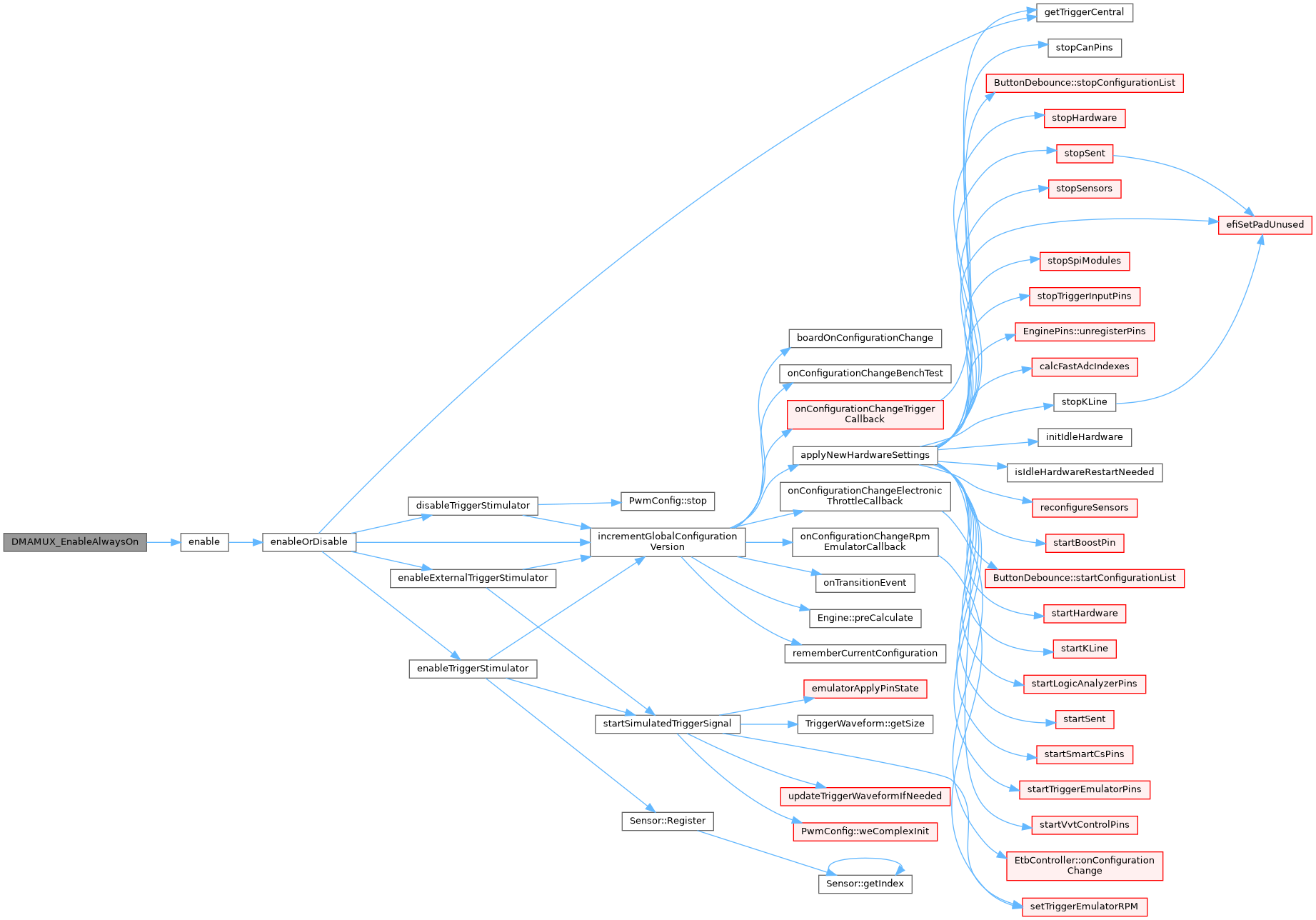DMAMUX Initialization and de-initialization | |
| void | DMAMUX_Init (DMAMUX_Type *base) |
| Initializes the DMAMUX peripheral. | |
| void | DMAMUX_Deinit (DMAMUX_Type *base) |
| Deinitializes the DMAMUX peripheral. | |
DMAMUX Channel Operation | |
| static void | DMAMUX_EnableChannel (DMAMUX_Type *base, uint32_t channel) |
| Enables the DMAMUX channel. | |
| static void | DMAMUX_DisableChannel (DMAMUX_Type *base, uint32_t channel) |
| Disables the DMAMUX channel. | |
| static void | DMAMUX_SetSource (DMAMUX_Type *base, uint32_t channel, uint32_t source) |
| Configures the DMAMUX channel source. | |
| static void | DMAMUX_EnablePeriodTrigger (DMAMUX_Type *base, uint32_t channel) |
| Enables the DMAMUX period trigger. | |
| static void | DMAMUX_DisablePeriodTrigger (DMAMUX_Type *base, uint32_t channel) |
| Disables the DMAMUX period trigger. | |
| static void | DMAMUX_EnableAlwaysOn (DMAMUX_Type *base, uint32_t channel, bool enable) |
| Enables the DMA channel to be always ON. | |
Detailed Description
Function Documentation
◆ DMAMUX_Deinit()
| void DMAMUX_Deinit | ( | DMAMUX_Type * | base | ) |
Deinitializes the DMAMUX peripheral.
This function gates the DMAMUX clock.
- Parameters
-
base DMAMUX peripheral base address.
brief Deinitializes the DMAMUX peripheral.
This function gates the DMAMUX clock.
param base DMAMUX peripheral base address.
Definition at line 87 of file fsl_dmamux.c.

◆ DMAMUX_DisableChannel()
|
inlinestatic |
Disables the DMAMUX channel.
This function disables the DMAMUX channel.
- Note
- The user must disable the DMAMUX channel before configuring it.
- Parameters
-
base DMAMUX peripheral base address. channel DMAMUX channel number.
Definition at line 92 of file fsl_dmamux.h.
Referenced by uart_lld_stop().

◆ DMAMUX_DisablePeriodTrigger()
|
inlinestatic |
Disables the DMAMUX period trigger.
This function disables the DMAMUX period trigger.
- Parameters
-
base DMAMUX peripheral base address. channel DMAMUX channel number.
Definition at line 137 of file fsl_dmamux.h.
◆ DMAMUX_EnableAlwaysOn()
|
inlinestatic |
Enables the DMA channel to be always ON.
This function enables the DMAMUX channel always ON feature.
- Parameters
-
base DMAMUX peripheral base address. channel DMAMUX channel number. enable Switcher of the always ON feature. "true" means enabled, "false" means disabled.
Definition at line 155 of file fsl_dmamux.h.

◆ DMAMUX_EnableChannel()
|
inlinestatic |
Enables the DMAMUX channel.
This function enables the DMAMUX channel.
- Parameters
-
base DMAMUX peripheral base address. channel DMAMUX channel number.
Definition at line 76 of file fsl_dmamux.h.
Referenced by uart_lld_start().

◆ DMAMUX_EnablePeriodTrigger()
|
inlinestatic |
Enables the DMAMUX period trigger.
This function enables the DMAMUX period trigger feature.
- Parameters
-
base DMAMUX peripheral base address. channel DMAMUX channel number.
Definition at line 122 of file fsl_dmamux.h.
◆ DMAMUX_Init()
| void DMAMUX_Init | ( | DMAMUX_Type * | base | ) |
Initializes the DMAMUX peripheral.
This function ungates the DMAMUX clock.
- Parameters
-
base DMAMUX peripheral base address.
brief Initializes the DMAMUX peripheral.
This function ungates the DMAMUX clock.
param base DMAMUX peripheral base address.
Definition at line 73 of file fsl_dmamux.c.
Referenced by dmaInit().


◆ DMAMUX_SetSource()
|
inlinestatic |
Configures the DMAMUX channel source.
- Parameters
-
base DMAMUX peripheral base address. channel DMAMUX channel number. source Channel source, which is used to trigger the DMA transfer.
Definition at line 106 of file fsl_dmamux.h.
Referenced by uart_lld_start().
